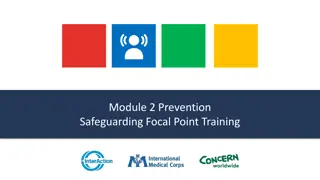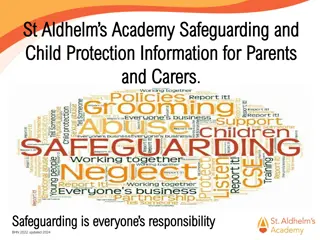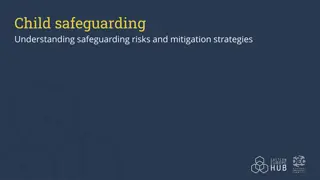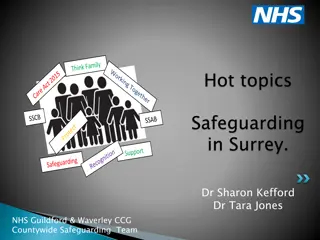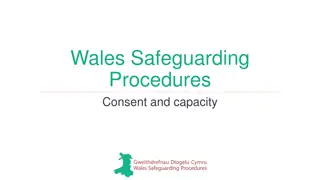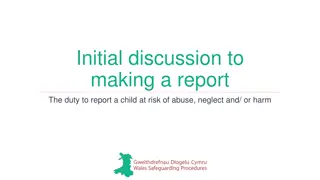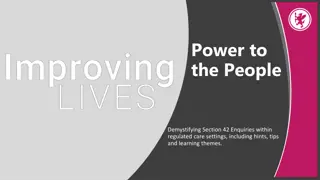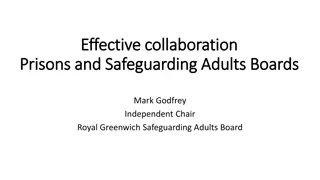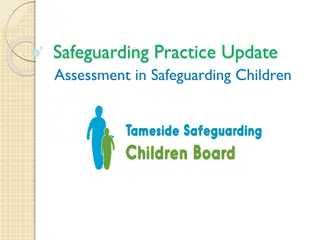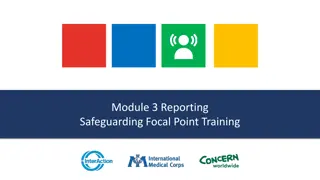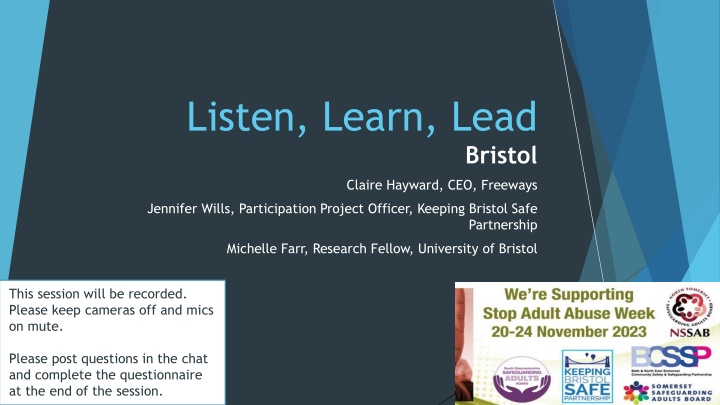
Challenges in Inclusive Work
Delve into the barriers faced when including Lived Experience and user voices in professional work, as highlighted in a recent quality assurance project initiated by the Keeping Bristol Safe Partnership. Explore the methodology, recommendations, and context to enhance understanding and effectiveness in adult social care systems. Gain valuable insights to improve the support provided to vulnerable adults in the Bristol area.
Download Presentation

Please find below an Image/Link to download the presentation.
The content on the website is provided AS IS for your information and personal use only. It may not be sold, licensed, or shared on other websites without obtaining consent from the author. If you encounter any issues during the download, it is possible that the publisher has removed the file from their server.
You are allowed to download the files provided on this website for personal or commercial use, subject to the condition that they are used lawfully. All files are the property of their respective owners.
The content on the website is provided AS IS for your information and personal use only. It may not be sold, licensed, or shared on other websites without obtaining consent from the author.
E N D
Presentation Transcript
Listen, Learn, Lead Bristol Claire Hayward, CEO, Freeways Jennifer Wills, Participation Project Officer, Keeping Bristol Safe Partnership Michelle Farr, Research Fellow, University of Bristol This session will be recorded. Please keep cameras off and mics on mute. Please post questions in the chat and complete the questionnaire at the end of the session.
SLIDO What barriers have you faced when including Lived Experience and user voice in your work? www.slido.com #2228969
Making Safeguarding Personal Interview report and recommendations
Background and Context This quality assurance work was requested by the Keeping Bristol Safe Partnership via a recommendation from a Safeguarding Adult Review (Christopher). The focus of the interviews was to ascertain the voice of the adult with care and support needs and their views on the effectiveness and the implementation of MSP across Bristol s adult social care. Focusing on the outcomes people want and understanding what makes for wellbeing in their lives is central to the Care Act (2014) and Making Safeguarding Personal (MSP). This quality assurance work sought to understand how adults with care and support needs (as defined by the Care Act (2014)) are supported across the local adult safeguarding system to achieve the outcomes which best meet their needs.
Methodology Participant 1 Young adult living with grandmother. Lacked capacity and grandmother also had learning needs. Could sometimes become aggressive and has had police involvement. Had children s social care involvement Participant 2 In prison in South Wales. Social workers do not visit him, only meet online. Mental health difficulties, learning needs, lack of employment opportunities. Participant 3 Older adult vulnerable to cuckooing. People staying and stealing money from him. Social worker made safety plan with bank Participant 4 Older adult experienced modern slavery. Presented as non-engaging to services, although was being exploited, neglected, and enslaved. Participant 5 Adult physically disabled and has mental health difficulties. Son is being criminally exploited Participant 6 Adult female with dual diagnosis. Recently discharged from being detained
Recommendation 1. In establishing the interviews, 29 adults were identified as meeting the criteria for inclusion yet only 6 interviews took place. In a couple of cases the adults in need of support were already deceased yet remained opened on the case management system. Some also lacked mental capacity and weren t deemed suitable for interview by their social workers. Adult social care managers to remind social work teams of the importance of the timely update and closure of case records and managers should check compliancy to ensure this has improved.
Recommendations 2 and 3 Social workers to ensure support plans are in place and regularly reviewed with the service user, so both parties are aware of progress against required support needs. It is recommended that service managers ensure staff have up to date support plans which are reviewed regularly and clearly recorded on LAS.
Recommendation 4 A future internal audit of support plans and how these are recorded on LAS is recommended
Recommendations 5 and 6 Adult Social Care to promote training and resources for the work force on professional curiosity and adult social care managers to discuss this in team meetings. A future care audit on the early closure of cases due to non- engagement will be undertaken by the KBSP to check professional curiosity has been applied. This is for those who refuse to engage with help to ensure they are not being exploited and/ or coercively controlled. The adult social care workforce to be encouraged by managers to attend KBSP training to increase awareness, knowledge and confidence to work in a trauma-informed way in supporting victims of modern slavery and exploitation.
Recommendation 7 It is recommended that the KBSP undertake quality assurance work on prison leavers and their experiences of adult social care, mental health support, housing, and other key areas of support.
Recommendation 8 Adults social care and children s social care work together to develop transitional safeguarding system-wide approach to safeguard and improve timely interventions for younger adults at risk, with an ambition to improve communication between children s social care and adult s social care.
Recommendation 9 The KBSP to include in the QAF for 2023/2024 to undertake quality assurance activity which focuses on the service users experience of accessibility of mental health services.
Recommendation 10 Given the small number of service users (6 from 29) it is recommended further quality assurance work is undertaken on Making Safeguarding Personal to increase the evidence base for CQC Assurance and MSP outcomes.
Reflection What have been your barriers to cases being closed? Are plans being reviewed regularly, and if not, why not? How often is your data base and IT training refreshed? What are the barriers to professionals being curious? Why is there such a gap in support for prison leavers? How do you support young adults within your service as they continue into early adulthood? What are you doing to improve the accessibility of mental health services, particularly when there is dual diagnosis? How do you engage with people who lack capacity?
SLIDO SAAW | Present mode (sli.do)
User involvement in safeguarding (SCIE, 2011) Evidence base is limited Barriers: Risk averse work practices but how do service users themselves perceive risk? Needs to be recognition of people s own autonomy and independence Need for diverse approaches Need for: Support and leadership from senior staff - provide resource, support and training for this to happen in practice Commitment to a rights-based approach More thoughtful and creative ways of communicating and engaging with people to meet diverse needs Greater understanding of how service users perceive risk, the support they need to manage issues at hand Time, energy and resources
Reasons given for not involving service users within safeguarding (Dixon 2023) Need to establish immediate safety The need for face-to-face assessments (particularly in cases with people with dementia, learning difficulties, complex family dynamics) which could take time to organise Service user resistance to safeguarding concerns (where issues raised by professionals, not service users) Importance of building relationships and trust with clients before these conversations can happen Limited time keeping on top of referrals into the system
Working with service users during safeguarding processes (Dixon 2023) Building trust through transparency and explanation Assuming capacity where possible even where unwise decisions may be being made Being aware of different perceptions of risk from professional and service user perspectives Being in risky situations and high levels of risk-tolerance then when fear expressed important to take this seriously the importance of building relationships with service users experiencing abuse and encouraging them to think about aspects of the abuser s behaviour helping the person establish self-esteem and act more assertively in the future. Helping people to pursue justice (Carr et al. 2019)
Ways to better involve people (SCIE, 2011) Staff notes should include service user views Developing accessible information and outreach - service users unaware of SG processes, what happens when Briefing and info about what to expect and what social workers do, debriefing, accessible meeting formats, mentoring and advocacy, recognising diversity of need Make use of independent advocacy where possible Support group for people who ve been through a safeguarding process Direct representation of service users on the Safeguarding Adults Board Developing support, training and capacity building for staff Involving service users in training professionals
Other resources Making Safeguarding Personal: Supporting increased involvement of service users (ADASS & LGA, 2017) User involvement in adult safeguarding. Report 47. Social Care Institute for Excellence https://www.scie.org.uk/publications/reports/report47/ Dixon, J. (2023) Adult Safeguarding Observed: How Social Workers Assess and Manage Risk and Uncertainty. https://policy.bristoluniversitypress.co.uk/adult-safeguarding-observed Mental Capacity, Self-Neglect, and Adult Safeguarding Practices: Evidence Synthesis and Agenda for Change https://www.bristol.ac.uk/policybristol/policy-briefings/adult-safeguarding- practices/ Christopher Safeguarding Adults Review Welcome to the Keeping Bristol Safe Partnership website. (bristolsafeguarding.org)

